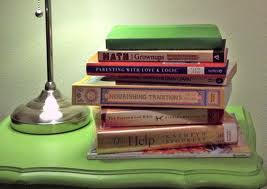
A BOY'S LEISURE HOURS
WHAT a boy does with his leisure is most important; what he gets in school is mainly drill or exercises; it is a gymnasium to him; he must eat elsewhere. What he does with his spare hours determines his destiny. Suppose he reads history every day, or scientific books; in the course of a few years he becomes learned. It matters little what he undertakes; Latin, Greek, Hebrew, Sanscrit, all disappear if he uses spare time on them.
A boy was employed in a lawyer's office, and had the daily papers to amuse himself with. He commenced to study French, and at that little desk became a fluent reader and writer of the French language. He accomplished this by laying aside the newspaper, and taking up something not so amusing, but far more profitable.
A coachman was often obliged to wait long hours while his mistress made calls. He determined to improve the time; he found a small volume containing the Eclogues of Virgil, but could not read it, and so purchased a Latin Grammar. Day by day he studied this, and finally mastered all its intricacies. His mistress came behind him one day, as he stood by the horses waiting for her, and asked him what he was so intently reading. "Only a bit of Virgil, my lady." "What, do you read Latin?"
"A little, my lady." She mentioned this to her husband, who insisted that David should have a teacher to instruct him. In a few years he became a learned man, and was a useful and loved minister in Scotland.
A boy was hired to open and shut the gates to let the teams out of an iron mine. He sat on a log all day beside the gate Sometimes an hour would pass before the teams came and this he employed so well that there was scarcely any fact in history that escaped his attention He began with a little book on English history that he found in the road; having learned that thoroughly, he borrowed of a minister, Goldsmith's History of Greece This good man became greatly interested in him, and loaned him books, and was often seen sitting by him on the log, conversing with him about the people of ancient times.
All of these examples go to show that in this
country any one can learn who wants to. If
he is at work, he still has three hours he can call
his own. Let him use those wisely, and he can
have his mind filled with stores of useful knowledge.
Scholar's Companion.
NOBODY likes to be interrupted by other people when talking. We like to say what we have to say, and finish it in peace. Some children allow themselves to form a rude and unmanly habit of breaking in upon the conversation of older persons with questions and remarks of their own. It is very uncivil to do so. So, too, among your own brothers and sisters and schoolmates of your own age, let them speak without interrupting them. If one begins to tell a story, or bit of news, let him finish it; and if he makes mistakes that ought to be corrected. Do it afterward.
Don't be an interrupter.